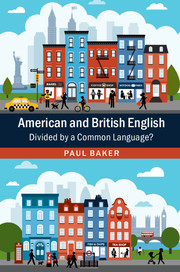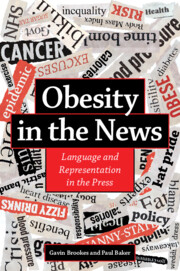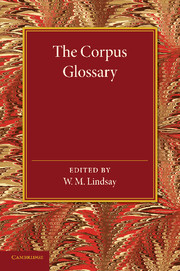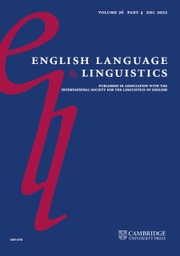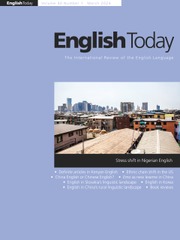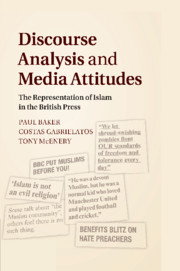American and British English
Divided by a Common Language?
- Author: Paul Baker, Lancaster University
- Date Published: September 2017
- availability: Available
- format: Paperback
- isbn: 9781107460881
Paperback
Other available formats:
Hardback, eBook
Looking for an examination copy?
This title is not currently available for examination. However, if you are interested in the title for your course we can consider offering an examination copy. To register your interest please contact [email protected] providing details of the course you are teaching.
-
Is British English becoming more like American English? If so, why, and in what ways? This book compares examples of American and British language data from the 1930s, 1960s, 1990s and 2000s, to track the most important ways that both varieties are changing over time, and compares the extent to which they are following similar paths using a mixture of computer and human analysis. The analysis is carried out across several levels, including spelling differences (such as colour vs color), vocabulary (truck vs lorry), and a range of morphological, grammatical, semantic and pragmatic features. Baker explores the changing aspects of American and British society which help to explain the findings.
Read more- Uses a fully corpus-driven approach, that doesn't rely on testing a set of pre-existing hypotheses
- Showcases a set of methods that can be used in conjunction with one another to carry out a comparative analysis of two sets of diachronic corpora and can be adapted for other corpus studies
- Provides analysis that goes beyond statistical tests and quantitative descriptions to consider context both within and outside the corpus
- Includes eight matched corpora from four decades which allows for better comparisons to be made, rather than a snapshot at a single point in time
Reviews & endorsements
Advance praise: ‘An engaging, in depth look at British and American English. In addition, Baker demonstrates a range of methods for analyzing language at many levels, and for contextualizing the results.' Randi Reppen, Northern Arizona University
See more reviewsAdvance praise: ‘American and British English: Divided by a Common Language provides a comprehensive, well-illustrated, and interesting description of how American and British English have changed from the 1930s through the 2000s, focusing on such topics as spelling differences, word frequency variations between the varieties, and the use of profanity and discourse markers.' Charles Meyer, University of Massachusetts, Boston
Customer reviews
Not yet reviewed
Be the first to review
Review was not posted due to profanity
×Product details
- Date Published: September 2017
- format: Paperback
- isbn: 9781107460881
- length: 276 pages
- dimensions: 227 x 152 x 15 mm
- weight: 0.41kg
- availability: Available
Table of Contents
1. Introduction
2. Spelling differences
3. Letter sequences and affixation
4. Higher frequency words
5. Lower frequency words
6. Part of speech categories
7. Semantic categories
8. Swearing, identity and discourse markers
9. Conclusion.
Sorry, this resource is locked
Please register or sign in to request access. If you are having problems accessing these resources please email [email protected]
Register Sign in» Proceed
You are now leaving the Cambridge University Press website. Your eBook purchase and download will be completed by our partner www.ebooks.com. Please see the permission section of the www.ebooks.com catalogue page for details of the print & copy limits on our eBooks.
Continue ×Are you sure you want to delete your account?
This cannot be undone.
Thank you for your feedback which will help us improve our service.
If you requested a response, we will make sure to get back to you shortly.
×
